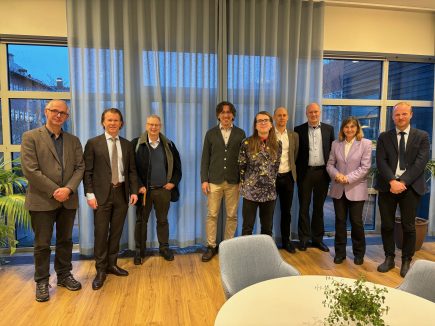On Friday, 26 January 2024, our colleague Morgan Görtz presented and defended his thesis for the degree of Doctor of Philosophy “Numerical homogenization of network models and micro-mechanical simulation of paperboard”.
Abstract
Micro-mechanical simulations of paper products involve complex geometries and challenging numerical problems. This work considers micro-mechanical simulations where individual paper fibers are modeled and resolved. This level of detail is useful in paper-product development, where wood composition and other fiber-based parameters are essential. Several time-dependent and nonlinear micro-mechanical models have been proposed in the literature for accuracy, but these models are limited to small problems.
This work evaluates linear network models as a possible effective tool for paper development, as they permit full commercial-grade paper to be modeled on consumer hardware. This evaluation was performed in the industrial collaboration Innovative Simulation Of Paper (ISOP), with the goal of developing numerically efficient micro-mechanical simulations that are useful for paper product developers. In this work, the linear model was shown to produce accurate results for tensile stiffness, bending stiffness, and tensile strength for paper products with low surface weight. Moreover, accurate tensile stiffness and bending stiffness simulations were possible with commercial-grade three-ply paperboards. Bending stiffness simulations using micro-mechanical models are not well studied, but from this evaluation, it is clear they are now possible on consumer-grade hardware.
Increasing the size of these micro-mechanical models requires specialized numerical techniques that are less resource-intensive. This work developed the theoretical foundation for a finite element-inspired mathematical theory on models based on networks. With this foundation, two resource-efficient methods, an iterative solver and a multiscale method, were mathematically motivated for the discrete network setting. These methods were also validated numerically for the mentioned micro-mechanical paper models. For the iterative approach, bending resistance simulations of models larger than the computational limit of a direct approach were possible.
We congratulate Morgan and look forward to keep working with him here at FCC!

